Plenary Speakers and Summer School instructors
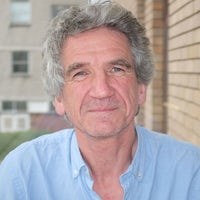
Tom Bartlett
University of Glasgow
Tom Bartlett is a Professor of Functional and Applied Linguistics at the University of Glasgow, where he teaches Systemic Functional Linguistics and Critical Approaches to Language and Communication.
His research interests include the dynamics of language change and how an understanding of these can contribute to discursive interventions within the social sphere, particularly in relation to climate change and sustainability. He has published widely on various theoretical and applied aspects of these topics: https://www.gla.ac.uk/schools/critical/staff/tombartlett/
You can access his blog with Michael Farrelly of Language and Power, with a focus on COP26, here: https://languagepowerpodcast.org/series1
Tom will present a plenary entitled Polyvocality and the Stylistics of Persuasion
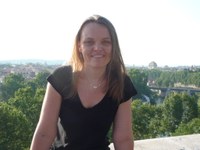
Maria Cristina Caimotto
University of Torino
M. Cristina Caimotto is Associate Professor of English Linguistics and Translation at the University of Torino, Italy. Her research interests include political discourse and environmental discourse, with a focus on ideology. She was involved in the project Lessico e Nuvole, which investigated the role of language in the communication of the climate crisis. She employs the approach of Ecolinguistics to investigate discourses of cycling promotion or bikelash, identifying beneficial, ambivalent and destructive discourse strategies. She is the author of Discourses of Cycling, Road Users and Sustainability: an Ecolinguistic Investigation (2020), a study that observes how discourses shape cycling and explores how cycling could shape new discourses. Her book offers tools to study the influence of narratives and discourses in resisting change towards more cycling-oriented policies. Other recent publications include "Promoting Urban Cycling: An Ecolinguistic and Discursive Approach" in Adam M. and Ortar N. (Eds.) Becoming Urban Cyclists: From Socialization to Skills (2021); "Cycling promotion and narratives of urban development: an ecolinguistic approach” in Hickman R. and Hannigan C. (Eds.) Discourse Analysis in Transport and Urban Development; and, with Raus R., Lifestyle Politics in Translation. The Shaping and Re-shaping of Ideological Discourse (2023). She is also a cycling advocate.
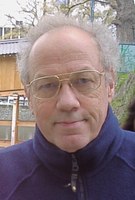
Andrew Goatly
Lingnan University – Hong Kong
Andrew Goatly is coming to the end/climax? of a long academic career. He graduated from Jesus College Oxford and University College London, where he was supervised for his Ph.D. by the late Randolph Quirk. He has taught English language and literature in schools, colleges and universities in Rwanda, Thailand, the UK, Singapore, Austria and Hong Kong, where he is still affiliated to Lingnan University as an honorary professor. His main academic interests are metaphor and metonymy, linguistic humour, critical discourse analysis, and (eco-) stylistics. He has published six books: The Language of Metaphors (Routledge 1997, 2nd edition 2011), Critical Reading and Writing in the Digital Age (Routledge 2000, 2nd edition with Preet Hiradhar 2016), Washing the Brain: metaphor and hidden ideology (Benjamins 2007), Explorations in Stylistics (Equinox 2008), Meaning and Humour (Cambridge University Press 2012), and his most recent Two Dimensions of Meaning: similarity and contiguity in metaphor and metonymy, language, culture and ecology (Routledge 2022). He is now semi-retired in Canterbury UK where he cultivates his garden, is a member of the Green Party, and a keen amateur singer.
Andrew will present a plenary entitled Ecostylistics and the terrors of transitivity

David Hannah
University of Birmingham
David M. Hannah is Professor of Hydrology, UNESCO Chair in Water Sciences, and Director of the Birmingham Institute for Sustainability & Climate Action at the University of Birmingham. He was included in Reuters list of the world’s top climate scientists. He was honoured with the Tison Award (2014) from the International Association of Hydrological Sciences (IAHS); in 2019, he became a Royal Society Wolfson Fellow; and he was awarded the Murchison Award from the Royal Geographical Society in 2022. His long-term vision is to understand water cycle processes, hydrological events (flood, drought) and water-related impacts under climate and other drivers of change. He promotes knowledge exchange to communicate the importance of water and climate science for society – often facilitated by his UNESCO Chair’s ‘network of networks’ at the science-policy interface. He has authored reports underpinning the UK RIDE/ LWEC Climate Change Impacts Report Card for Water for decision-makers; his work has been included in three IPCC reports; and he gives policy advice to UK water industry, NGOs, Scottish Government, overseas government agencies, and water sector regulators on climate change adaptation. He fronted the Birmingham Heroes media campaign on “The Water Crisis”. These activities demonstrate his strong commitment to research that matters in the real-world.
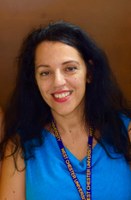
Marina Lambrou
Kingston University - London
Marina Lambrou is an Associate Professor in English Language and Linguistics at Kingston University. She is the Editor-in-Chief of the Journal of Literary Semantics and was the previous Chair of the Poetics and Linguistics Society (PALA).
Marina’s research and publications are in both literary and non-literary stylistics; media discourses; narratology; and personal and trauma narratives, with more recent work focusing on disnarration and the counterfactual in fictional and factual texts. She is also interested in learning and teaching pedagogy and has published in this area. Her publications include Narrative Retellings: Stylistic Approaches (Bloomsbury), Disnarration and the Unmentioned in Fact and Fiction (Palgrave), Contemporary Stylistics (Continuum) and numerous chapters and articles.
Marina will present a plenary entitled “Do you love me?”: discourses of literal and figurative framings of environmental degradation in a short story
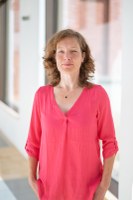
Michaela Mahlberg
University of Birmingham
Michaela Mahlberg is Professor of Corpus Linguistics at the University of Birmingham, UK. Before she came to Birmingham, she was Professor of English Language and Linguistics at the University of Nottingham. She previously held positions at the University of Liverpool, Liverpool Hope University College and the University of Bari in Italy. Michaela’s research focuses on the relationship of language and reality. She investigates how language creates identities, frames social realities, and is fundamental to storytelling. Michaela’s publications include the monograph Corpus Stylistics and Dickens’s Fiction (Routledge, 2013), and she has been leading the development of the CLiC web app for the study of literary language. CLiC is now used in over 100 countries world-wide. Michaela is the editor of the International Journal of Corpus Linguistics (John Benjamins) and together with Gavin Brookes she edits the book series Corpus and Discourse (Bloomsbury). She is the Vice President of the international Dickens Society, she is a Fellow of the Alan Turing Institute in London, and she hosts the podcast Life and Language.
Michaela will present a plenary entitled Let’s talk about water: the importance of language for tackling the climate crisis

Peter Stockwell
University of Nottingham
Peter Stockwell is Professor of Literary Linguistics at the University of Nottingham, and a Fellow of the English Association. He has published 20 books and 100 articles in stylistics, sociolinguistics, science fiction and applied linguistics, including Texture: A Cognitive Aesthetics of Reading (Edinburgh University Press, 2009), Cognitive Poetics(Routledge, 2020), The Language of Surrealism (Palgrave, 2017), and The Poetics of Science Fiction (Pearson, 2000). He co-edited The Cambridge Handbook of Stylistics (CUP, 2014), The Language and Literature Reader (Routledge, 2008) and Contemporary Stylistics (Continuum, 2007). His work in cognitive poetics has been translated into many languages, including Chinese, Japanese, Polish, Persian, Russian and Arabic.
Peter will present a plenary entitled It’s about time
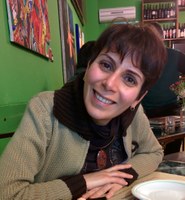
Daniela Francesca Virdis
University of Cagliari
Daniela Francesca Virdis (she/her) (PhD, University of Genoa, Italy) is an Associate Professor of English Language and Translation at the University of Cagliari, Italy, where she teaches Language & Gender, Stylistics, Pragmatics and Structural Grammar in First and Master’s Degree Courses.
She is a member of the International Ecolinguistics Association (IEA) Steering Group and the Erasmus Programme Academic Coordinator for the Faculty of Humanities of the University of Cagliari. She was the Secretary of Poetics And Linguistics Association (PALA).
She is the author of the books Ecological Stylistics: Ecostylistic Approaches to Discourses of Nature, the Environment and Sustainability (2022) and Serialised Gender: A Linguistic Analysis of Femininities in Contemporary TV Series and Media (2012), which was awarded the Italian Association of English Studies (AIA) Book Prize 2013 for a monograph in the field of English Language and Linguistics.
She is a co-editor of the books Language in Place: Stylistic Perspectives on Landscape, Place and Environment (2021) and The Stylistics of Landscapes, the Landscapes of Stylistics (2017).
She is also the author of the book “A spectacle of strangeness”: Diavoli e Streghe nel Teatro Giacomiano (Devils and Witches in the Jacobean Theatre, 2004), the author and editor of the Italian translation of B. Jonson’s The Devil Is an Ass (2003), and a co-editor of the volume Ricerca e Didattica nei Centri Linguistici di Ateneo (Research and Language Teaching in University Language Centres, 2006).
She has also published widely on language & sexuality in Victorian erotica, national-ethnic stereotypes, and Late Modern fictional and non-fictional prose from a historical pragmatic perspective. She is currently researching ecostylistics and metaphor theory.
Daniela will present a plenary entitled Ecological Stylistics: Between Theory and Practice